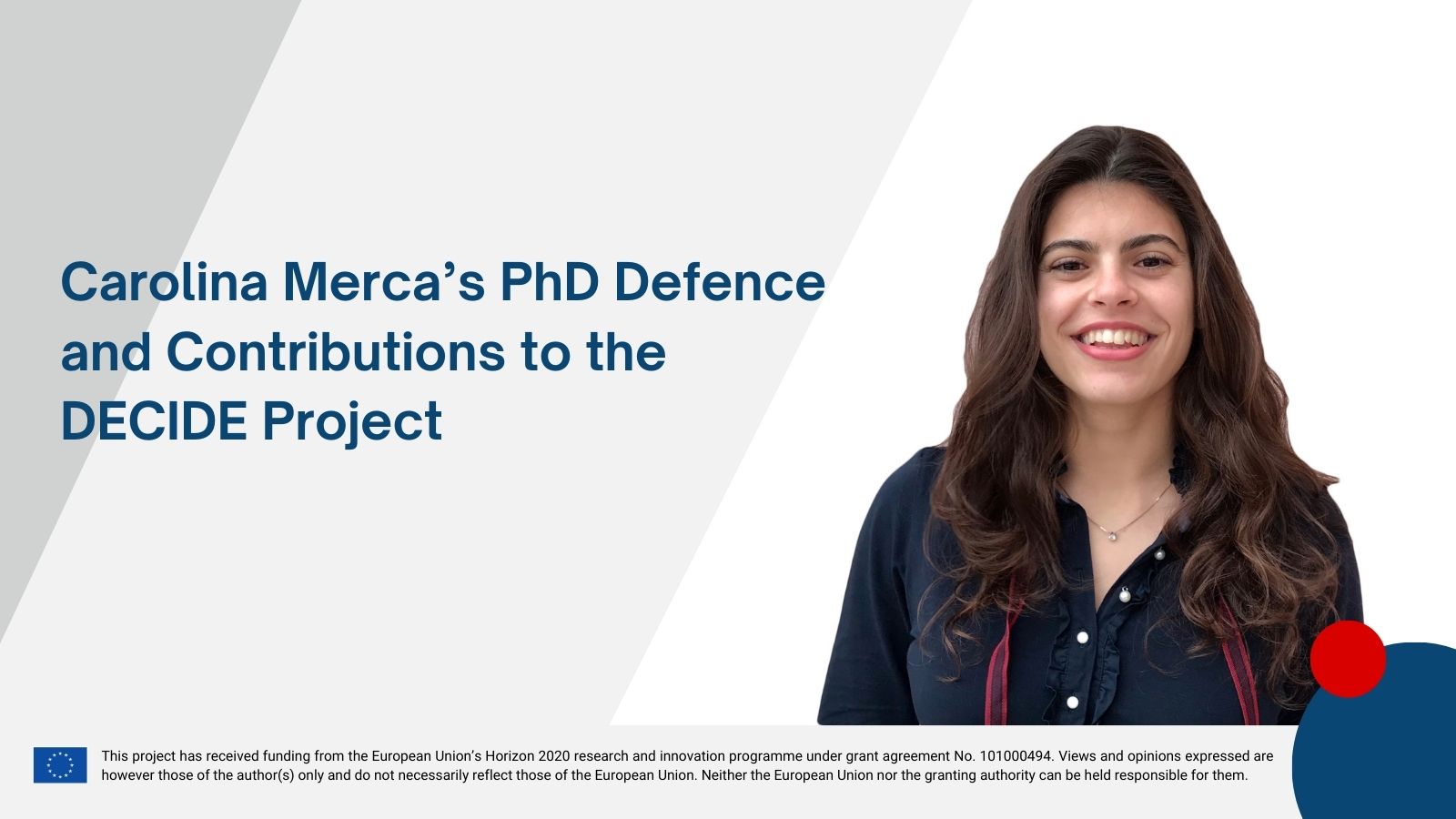Congratulations to Carolina Merca, a valued partner of the DECIDE consortium, on successfully defending her PhD thesis on 28 February! Her thesis, titled Multivariate Monitoring Approaches for Animal Health in Different Production Systems, marks a significant academic achievement.
While this was a moment of celebration for Carolina and the entire DECIDE team, it also signified the conclusion of her involvement with the project. As it was her final week at the University of Copenhagen, her time with DECIDE also came to an end. We are deeply grateful for her three years of collaboration and wish her great success in her future endeavours.
We invited Carolina to share her experiences and insights from her work within the DECIDE project:
My PhD work, conducted within the DECIDE project, focused on developing models to create data-driven decision support tools to improve animal health and welfare in two key areas: Atlantic salmon mortality in aquaculture and treatment strategies for Bovine Respiratory Disease (BRD) in fattening farms. The growth of salmon production has been accompanied by increasing mortality rates in key aquaculture countries. Particularly in Scotland, approximately 25% of farmed salmon do not survive to harvest. To address this challenge, we developed dynamic linear models (DLMs) to monitor monthly salmon mortality and provide warnings when mortality is significantly higher than expected. This approach, relying solely on open-source data, adds value to already existing datasets and eliminates the need for complex data-sharing agreements. For BRD, a major cause of disease and antimicrobial use within the cattle industry, we created a proof of concept for a decision support tool to inform stakeholders about the appropriate timing for conducting collective treatments (metaphylaxis) for BRD. The tool demonstrated particular benefits in high-risk scenarios, reducing disease incidence, severity, and antimicrobial usage. Together, these modelling solutions offer a foundation for future implementation, assisting farmers, veterinarians, and health authorities make better-informed decisions that promote sustainable production while safeguarding animal health and welfare.
Carolina Merca
Visit our Results page to explore Carolina’s publications and conference contributions, and connect with her on LinkedIn to stay in touch.

